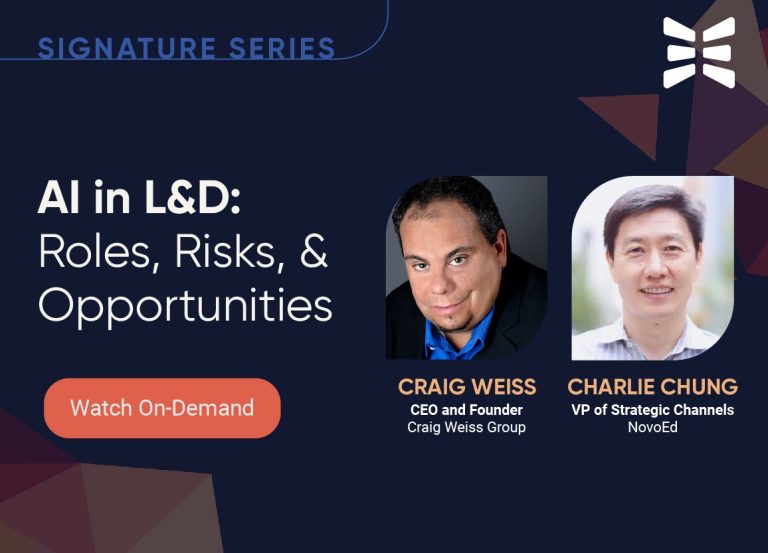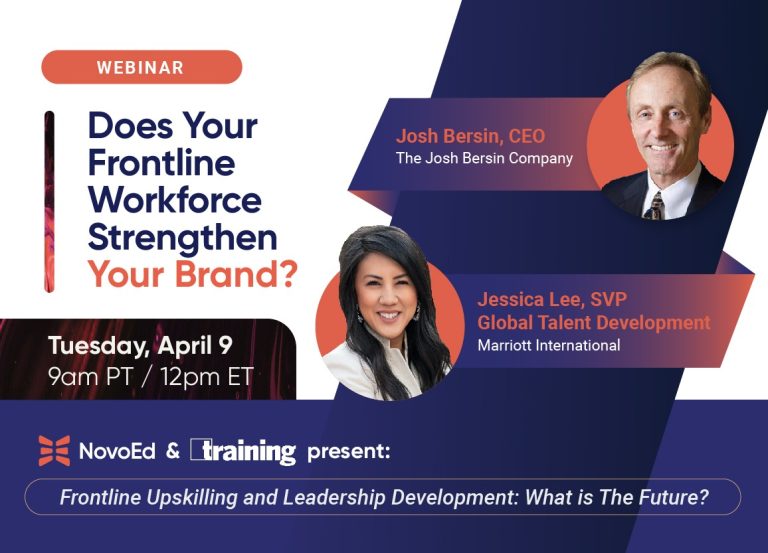Developing the Right Recipe for the Future Workplace
Business transformation leaders are recognizing that creating opportunities for practice and application, mentorship, and reflection within their organizations is a game changer… when teams come together via learning new capabilities, magic happens. Greater knowledge means more innovation. Increased alignment results in more impact.
Last month, NovoEd gathered a group of Chicago business leaders and faculty and researchers from Northwestern University to explore the “Recipe for the Future Workplace.” The private library and culinary laboratory at Topolobampo where celebrated chef Rick Bayless tests recipes and innovates for his restaurants (and that houses the largest collection of Mexican cookbooks in the US), served as a thought-provoking setting for a learning luncheon focused on forward-thinking formulas for the future workforce.
Facilitated by Ben Eubanks, Chief Research Officer for Lighthouse Research & Advisory and host of the We’re Only Human podcast, along with NovoEd’s Head of Field Marketing and Brand Experiences Alex Gruhin, the event focused on actionable ways organizations can create rapid alignment at scale and successful business impact across industries by introducing and executing extraordinary and equitable opportunities for learning and development.
How to go beyond lip-service when it comes to learning culture
One major lesson we are collectively learning from The Great Resignation (perhaps more aptly known as The Great Reprioritization) is that employees need to feel valued and supported, and that they are contributing to their organizations in meaningful ways that create impact.
Eubanks shared his insights on this momentous era based on his work uncovering the trends and technologies that drive HR, learning, and talent. These current trends include:
- The Great Resignation is inevitable, but leaders are not powerless. Organizations should recognize that they have powerful tools that they can implement to support their workforce and increase retention, including fostering a deeply ingrained culture of sustainable learning and career advancement that empowers and inspires current and future employees.
- Make learning a clear priority. Leaders shouldn’t assume that their workforce inherently understands how they are prioritizing learning in their organizations. If an employee doesn’t perceive that learning has precedence, it won’t rank on their own list. Communicating opportunities for learning and development during team meetings, designating training as a percentage of an employee’s performance review, making mentorship an available and expected part of the job… these types of daily actions add up to the greater good.
- Create learning that is social and “sticky.” One of the things successful learning initiatives have in common is the opportunity to apply concepts in a collaborative, experiential way, and this happens both in the corporate and education spheres.
As Eubanks shared during the event, “Creating a moment or experience to level set on the importance of learning is so critical, especially in a distributed workforce.” This experiential learning was reaffirmed by guests around the table. One example discussed was athletes’ participation in a training camp, where they have to unlearn and relearn some basics in order to have a foundation to build upon. This is important in any environment, but doubly so in a virtual or remote work experience.
Gruhin extended the sports metaphor: “It is critical that there is foundational alignment for teams to compete. Offseason activity and training camp set a literal and figurative level playing field, and the most successful teams are able to align free agent acquisitions, newly drafted players, and exciting personnel to a core scheme and culture. This is similar in the corporate arena. Only when everyone is aligned quickly and working towards the same goals and mission – a process that a strong learning program can catalyze quickly – will teams be able to compete at the highest level.”
Real world examples of effectual and engaging learning initiatives
One of the business leaders present shared that their company not only encourages but requires workers to complete a number of training hours annually. However, this organization’s learning initiatives are designed to be highly flexible and personalized to the person’s needs and their own interests and strengths, increasing effectiveness exponentially.
The bottom line: Learning is important to the success of an organization and an individual and should be baked into the workplace culture for ongoing development and advancement. Research backs up the importance of continually developing a wide range of skills versus trying to go super deep into one specific area for a much more creative, agile, and satisfying learning journey.
This unique gathering was part of a series of experiential concepts developed for The LX — a kaleidoscopic community of learning leaders. The LX brings torchbearers and trailblazers in the People space together to connect the dots to a brighter, wiser future. Click here to join.


